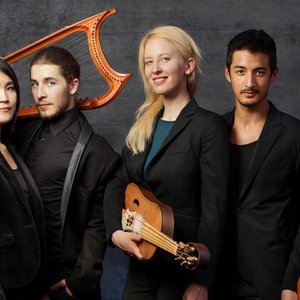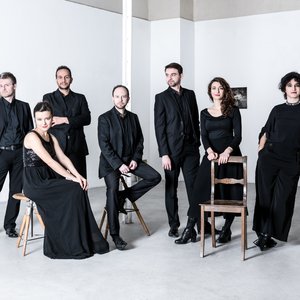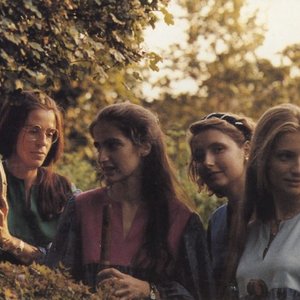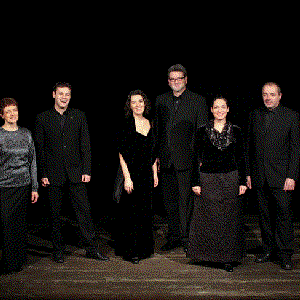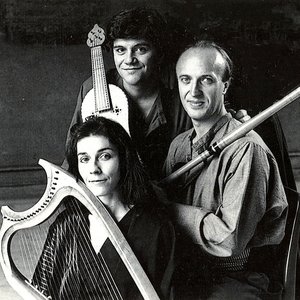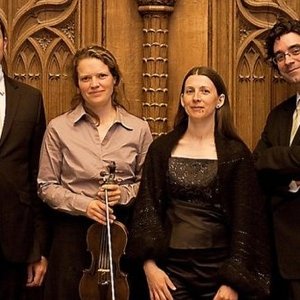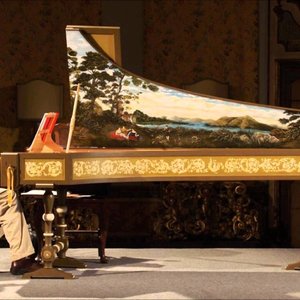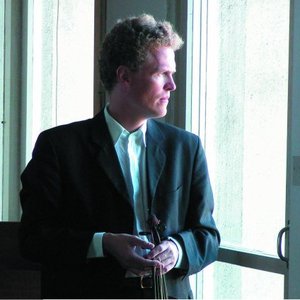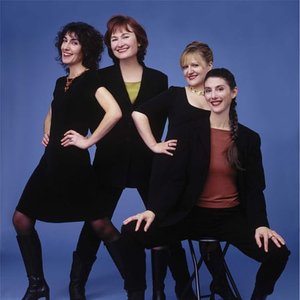Biography
La fonte musica is an ensemble specialized in the interpretation of late medieval music (with a focus on italian Trecento) on period instruments and by means of a steady philological research. The core of La fonte musica's rendering ideas is to go back to the sources, to the roots of medieval polyphony, deep into the meaning of the lyrics and the sense of musical choices in the compositions. A careful decoding of rethorics and musical grammar is the key for comprehension and translation for us, today, of an extraordinarily creative, experimental and refined but yet not enough known musical season. La fonte musica's live performances are characterized by vocal and instrumental virtuosity, essential to meet the complexity and love for details typical of Ars Nova-Ars Subtilior, and by an idea of the concert as a global performance, where listening, vision and gestures interact in order to go beyond the frontal form of the concert. The name La fonte musica alludes first of all to the fountain, a topos in medieval poetry, a place of regeneration and life, centre of the garden and a symbol of pleasure. The fountain (fonte) is also a place of music and of the Muses, its symbolic roots deepen into classical myth: this direction will be followed in our second disc. Finally – at the beginning – the fountain is the origin, but also the original in the sense of the musical source. A "fonte" is a source to be studied, understood and made alive again through the research that can bring out the refinement, ambiguity, audacity, layering and virtuosity of Trecento music. The compositions of the Ars Nova maestri are on the same level as the most celebrated masterpieces of the figurative arts and architecture, and can now resound thanks to a deep study of the manuscripts, attention to the relationships between lyrics and music and to the use of rhetoric, inspiration from the scientific, artistic, historical and poetical context, and a constant research on temperaments, vocal and instrumental praxis, and theoretical treatises. La fonte musica's repertoire is ripe fruit of medieval civilization at the end of its life. Renaissance, whose advent can be foreseen in the historical context of the compositions recorded on this disc, was compelled to deny the aesthetics that found in the pieces of the late-medieval masters: it cannot inherit the subtilitas, it cannot remember the melancholy of the waning of the Middle Ages. New names, new forms, new states are needed. Maybe the sympathy that we feel - and that we hope we have been able to communicate – with the musical and poetic world of the autumn of the Middle Ages rests upon a sensibility common to the moments when an age heralds its end. Then can it happen that the rare gems left to us today by nearly-forgotten masters can easily and naturally communicate to us their astonishing beauty, as fragments of a common language.
Biography
La fonte musica is an ensemble specialized in late medieval music founded and directed by Michele Pasotti. Though recently founded, La fonte musica is formed by some of the most renowned singers and instrumentalists of the italian and european early music scene. The main focus of the group is to realize a new interpretation of the XIV and early XV century music based on is members' experience in philological performance and on an accurate study of the repertoire, sources, and the late middleages culture as a whole. The ensemble has been invited, among the others by Resonanzen festival at the Wiener Konzerthaus (Austria), festival Les Inouies in Arras (France), Cantar di Pietre in Switzerland, Musica nei Chiostri, Musica Ricercata, festival Emozioni in musica, and has being a guest of the seasons: Ghislierimusica, Musica in Università and Sant’Agostino tra musica e filosofia. La fonte musica, in cohoperation with the University of Pavia, has organized an international Symposium on "Musica e arte nei territori viscontei" ("Music and art in Visconti's territories"), concluded by a concert of the ensemble. In every pubblic appearence the ensemble has been praised by audience and critics for the accuracy of the performances, the deep penetration of the scores and lyrics and a communicative energy uncommon in this repertoire. The first recording project "Le Ray au Soleyl. Musica alla corte pavese dei Visconti (1360-1410)" came out in April 2011, published by ORF/Alte Musik. The first critics signal it as an "ideal performance" thanks to which this music "reaches the maximum level of emotional tension". "Only like this an authentic dialog with this extraordinary moment of middle ages music is possible" (KKKKK, maximum vote for RBB kulturradio, Berlin). With this first disc la fonte musica explores the many meanings that its name suggests. The fonte (fountain) alludes first of all to the fountaine, a topos in medieval poetry, a place of regeneration and life, centre of the garden and a symbol of pleasure. The fountain (fonte) is also a place of music and of the Muses, its symbolic roots deepen into classical myth: this direction will be followed in our second disc: Metamorfosi Trecento.
Members
La fonte musica is formed by a number of musicians that goes from 4 to 11.
Its members are:
Francesca Cassinari – soprano
Alena Dantcheva – soprano
Gianluca Ferrarini – tenor
Efix Puleo – viella da braccio
Thomas Baeté – viella da gamba
Marco Domenichetti – flutes
Marta Graziolino – harp
Ermes Giussani – slide trumpet
Mauro Morini – slide trumpet
Michele Pasotti – lute and musical direction
Michele Pasotti
Graduated in Lute with Massimo Lonardi and specialized in renaissance and baroque lute attending masterclasses by Hopkinson Smith, Paul O'Dette and Tiziano Bagnati. At the Accademia Internazionale della Musica in Milano he later specialized in “Italian Baroque Chamber Music” with Laura Alvini, and in “Renaissance Theory of Music and Counterpoint” with Diego Fratelli. He particularly deepened the study of late medieval theory and practice for four years under the guidance of Kees Boeke and then two years with Pedro Memelsdorff at the Escola Superior de Musica de Catalunya in Barcellona. At Rome’s Università “Tor Vergata” he graduated with a first class degree the specialization course “Ars Nova in Europa”. He also received a first class degree in Philosophy at the University of Pavia. As a teacher Michele Pasotti is regularly invited by Conservatorio “L. Marenzio” di Brescia to give masterclasses and in 2011 he is giving a series of conferences for Ghislierimusica called "Le chiavi. Incontri per entrare nella musica barocca". The musicological research on the Ars Nova music brought him to partecipate to international meetings and to hold a seminar on italian Ars Nova called "TRECENTO!" (summer/autumn 2011) organized by Gaudete! Festival. He played with ensembles and orchestras including Orchestra Mozart, I Solisti della Scala, Venice Baroque Orchestra, Orchestra del Teatro “Carlo Felice” di Genova, Orchestra del Teatro “La Fenice” di Venezia, Orchestra I Pomeriggi Musicali, Accademia del Ricercare, La Magnifica Comunità, Cantica Symphonia, and with the best singers and instrumentalists of the ancient music scene. In many concerts held all around Europe Michele Pasotti was conducted by Claudio Abbado, Barthold Kujiken, Diego Fasolis, Andrea Marcon, Monica Huggett, Nathalie Stutzmann, Corrado Rovaris, Andrea Molino, Carlo Boccadoro. In fall 2008 was called by renouned cellist Mario Brunello to play in his baroque project Brunello Baroque Experience. He is a steady member of the ensembles: I Barocchisti, Orfeo 55, Il Canto di Orfeo, Ghislieri Consort, Accademia d’Arcadia, I Virtuosi delle Muse, Capella Cracoviensis, I Virtuosi Italiani, ensemble il Rossignolo. With them he received the most important prizes of international critics (Grand Prix du Disque de l’Académie Charles-Cros, 3 Diapasons d'or, Choc du Monde de la Musique, Gramophone’s Editor’s Choice). Michele Pasotti performed in the most important festivals and concert halls throughout Europe (Concertgebouw, Theatre des Champs-Élysées, Le Grands Concerts de Versailles, Salle Gaveau in Paris, Wiener Konzerthaus, Festspielhaus Baden Baden, Festival de Musique Baroque de Lyon, Handel Festival in London, Opera Avignon, Nancy, Vichy, Bordeaux, Madrid, Arsenal de Metz, Festival de Saint Riquier, Uzes, Beaune, Sablé-sur-Sarthe, Cuenca, Laus Polyphonie Antwerpen, Warsaw and Krakow Philharmonia, Sofia NDK, Munich Prinzregententheater, Schwetzingen SWR Festspiele, Accademia di Santa Cecilia and Parco della Musica in Roma, Teatro “Carlo Felice” di Genova, Orchestra Mozart, Radio Svizzera Italiana di Lugano, Mito-Settembre Musica, Musica e poesia a San Maurizio di Milano, Barockfestival St. Pölten, Festival Trigonale in Klagenfurt, Settimane Musicali di Stresa, Ente Filarmonico Italiano di Arezzo, Festival Monteverdi di Cremona, Unione Musicale di Torino, Accademia Chigiana in Siena. Among the many recordings (beyond those for Deutsche Grammophon, EMI/Virgin Classics, Naïve, Sony/Deutsche Harmonia Mundi, SWR, Chandos, Glossa, ORF, Avie, Rai Radio 3, Rete 2 of Rsi, France 2, Dynamic, Tactus, La Bottega Discantica) let’s remember a work dedicated to the guitarist Francesco Corbetta (Dynamic), where he plays as a soloist and a cd entirely devoted to Pergolesi with Orchestra Mozart conducted by Claudio Abbado, recorded by Deutsche Grammophon.
Artist descriptions on Last.fm are editable by everyone. Feel free to contribute!
All user-contributed text on this page is available under the Creative Commons Attribution-ShareAlike License; additional terms may apply.
